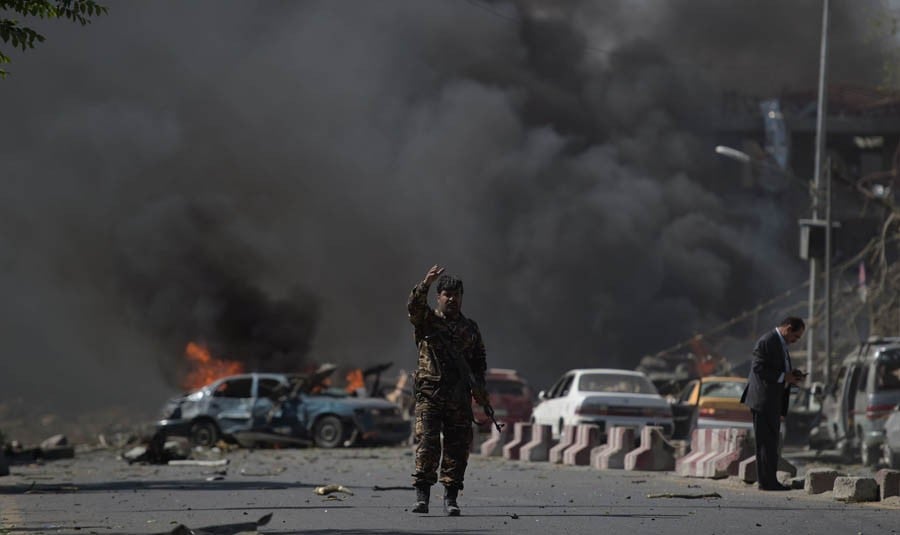
Why the US pressure on Pakistan to blunt the Taliban-affiliated Haqqani network may not yield the desired outcome?

The US Defence Department has withheld $50 million as reimbursement to damages and losses incurred by Pakistan in the war against terrorism for fiscal year 2016. The rationale behind the move is that the US believes Pakistan has not been taking effective measures to blunt the Taliban-affiliated Haqqani network. There are reasons why the US pressure may not help it achieve the desired outcome i.e. making Pakistan take effective steps against the Haqqani faction of Taliban.
First, the US has never treated Taliban as a direct threat to its security. The US only considered the Islamist militia as an indirect security threat because it had given refuge to international terrorists, bin Laden and his al Qaeda that Washington had accused of executing the 9/11 terrorists attacks on the American soil and its installations elsewhere. Pakistan has delivered on the count of handing over al Qaeda operatives.
By July 2004, the country, catching 689 alleged al Qaeda operatives, had handed over 369 members of the terrorist outfit to the US. "The Bush administration did not question Musharraf as long as the Pakistani army cooperated with the principal US objective to catch al Qaeda leaders," wrote Ahmed Rashid in his book titled Descent into Chaos. On Taliban, in November 2001, with the fall of Kunduz in the offing, US President Bush entertained Gen. Musharraf’s request to airlift Pakistani officers and citizens trapped in the encircled city. There were reports that hundreds of Taliban were also flown to safety before November 25 when Kunduz finally fell to Northern Alliance, reported The New Yorker.
Secondly, the US policy towards Taliban is designed to thrive on crisis. Apparently, the two countries may appear on different wave lengths, the US and Pakistan are on the same page when it comes to sustaining Taliban in Afghanistan for different purposes though. The Taliban presence in rural Afghanistan gives the US carte blanche to justify its permanent presence in the country in order to contain rising China, check assertive Russia and monitor Iran’s nuclear ambition and Pakistan’s nuclear programme, at least this appears to be consensus in Beijing, Moscow, Tehran and Islamabad. For Pakistan, Taliban are a lifeline to its national security interests at the court of Kabul.
Third, policy makers in Pakistan seem confident that owing to Pakistan’s strategic importance, Washington needs Islamabad more than vice versa. In the Cold War days, the main stimulus for alliance systems in the form of SEATO and CENTO was American, spawned by the US strategic calculation to contain the erstwhile Soviet Union. The same revisited back in the late 1970s, when the former USSR invaded Afghanistan, and 2001 when the US needed Pakistan to attack Taliban-ruled Afghanistan. Currently, the US can’t defeat Taliban without Pakistan’s fullest possible cooperation. The route to peace at Kabul goes through Islamabad.
Fourth, the US pressure tactics have not paid off in the past too. According to a report compiled by The Guardian, in the 1970s, the US under Jimmy Carter suspended all but food aid to Pakistan due to the latter’s decision to construct uranium enrichment facility. Likewise, the US Pressler Amendment of August 1985 stated that Pakistan would not receive any military or technological equipment until certified by the American president that Pakistan did not possess any nuclear device.
In 1990, the US president did not certify that Pakistan did not possess nuclear weapon hence all economic and military aid to Pakistan was stopped. Nevertheless, this did not stop Pakistan from going nuclear in May 1998, triggering further sanctions on the country under the Arms Export Control Act.
Fifth, once ruling elites conceive something as part of national security paradigm, there is either no space or very little of it left for compromise. Making a nuclear bomb was such an enterprise where no amount of American pressure worked to prevent Pakistan from making nuclear devices. Similarly, Taliban appear to be part of national security paradigm whereby no amount of external pressure will work until the reasons that engender the need for Taliban are addressed. Pakistan wants a Pashtun-dominated Islamist government in Afghanistan so as to counter Indian influence at the court of Kabul.
The US shouldn’t be passing the buck for instability in Afghanistan. It must come clear on whether it is for Taliban or against them. Similarly, the US needs to work with Pakistan, recognising its ‘legitimate’ concerns in Afghanistan. The American duality has cost Afghanistan dearly.